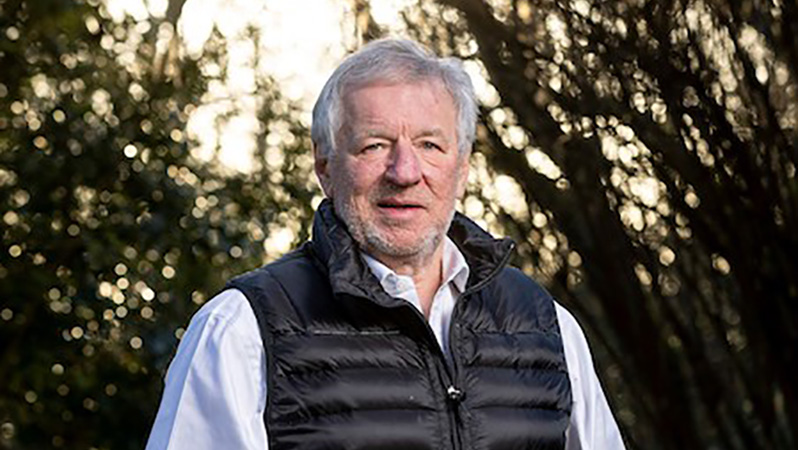“Age is a high cost to pay for experience,” notes Assetco chairman Martin Gilbert ruefully. The co-founder of Aberdeen Asset Management says people today “would not believe how small the industry was 30, 40 years ago”.
“There was no data, and everything had to be done by phone,” he adds. The Financial Times would land in the Granite City at around 10am. “You just cannot comprehend how big the fund management industry has become, and how complex.”
Gilbert points to former Abrdn colleagues Harry Nimmo and Hugh Young as examples of managers with deep industry experience who have kept their respective approaches “quite simple”. “They don’t overcomplicate what is a pretty simple business, which is to choose good stocks for the long term.”
When making decisions, managers “should try and look through the complexity and the huge amount of data that’s available”, he says.
Making good of your mistakes
Gilbert is not shy about admitting to having made missteps during his career. “If you don’t make mistakes, you’re not taking any risks.” The biggest lessons he has taken from them, however, are that “gearing kills you in any product” and “don’t cut at the point of maximum pain”.
It was the early 2000s when Aberdeen “had a near-death experience in split-cap investment trusts, geared closed-end funds, which killed that product and very nearly the company”.
Bannered up as ‘low risk’, many of the strategies lost almost all their value after incurring dramatic losses off the back of falling share prices, cross-shareholdings and heavy borrowing. It was a pretty intense period for Gilbert, which saw him personally summoned before the Treasury Select Committee.
In 2004, the UK watchdog, known as the Financial Services Authority at the time, agreed a £194m compensation fund for investors who had lost money. Aberdeen was one of 18 companies to contribute.
Riding out the losses
Of his second lesson, Gilbert says: “History is littered with people cutting at the point of maximum pain, ie they can’t take the pain of not being in growth stocks any longer.”
In the late 1990s, two of the big four UK asset managers invested in technology and were hit with what Gilbert describes as the “double whammy”.
“They ended up underperforming on the way up and underperforming on the way down. If you are an equity asset manager and cut at the point of maximum pain and change style, that finishes you forever. Those companies never really recovered, in terms of equities.”
For managers “going through a tough time”, Gilbert’s advice is “do not try and trade your way out”. “If you are happy with your holdings, just hold them through this difficult period of performance.”
When it comes to the outlook for the industry, he is upbeat, noting with a wry chuckle: “If you’re an equity fund manager, you’re always optimistic.” Gilbert describes the current corrections as “welcome” as they “take the froth out of the market”.
“I think it gives active equity fund managers a chance to outperform. Hopefully, they will take that chance and do well in markets that are ideally suited to stockpickers, rather than just buying an index.
“We are about to enter a much higher-rate environment, which will bring back more choice for retail investors. I don’t think people realise the interest rate cycle was at a historic low over the past 15 years.”
Once inflation comes back down, “they will be able to use cash as a means of saving again, opening up an asset class that has not been available for the past 10-15 years”.
BIOGRAPHY
Martin Gilbert is chairman of Assetco. He co-founded Aberdeen Asset Management in 1983 and served as CEO from 1991 to 2017. During that period, Aberdeen grew to £308bn of assets under management.
In 2017, Aberdeen merged with Standard Life to become Standard Life Aberdeen. Gilbert was co-CEO and, subsequently, vice-chairman until he retired in September 2020.
He is chairman of Revolut and Toscafund, deputy chairman of River and Mercantile Group and senior independent director of Glencore, alongside a number of other directorships.
This article first appeared in the December edition of Portfolio Adviser Magazine







